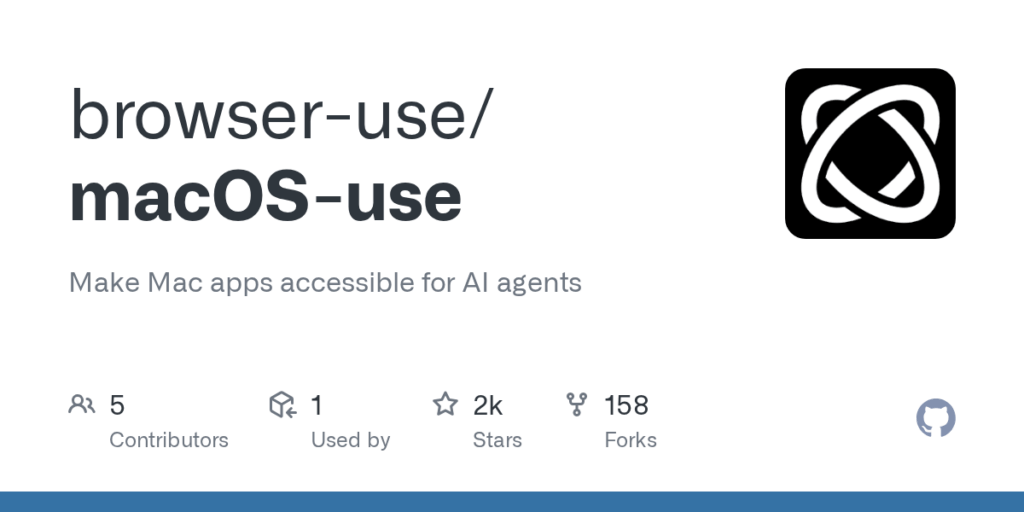macOS use
Basic Information
macOS-use is an open source project that enables AI agents to control and interact with a MacBook across any app and UI component. It provides tooling, examples, and a Python package to let developers run agent-driven actions on macOS via natural language prompts. The repo demonstrates integration with large model providers and local inference plans, and it aims to become a component for the MLX ecosystem to run private on-device models. The README includes quick start instructions for installing the package, configuring API keys and environment files, running example scripts, and warnings about security and supervised use. The project is intended for developers and researchers who want to build or experiment with agents that can automate tasks on Apple devices.








